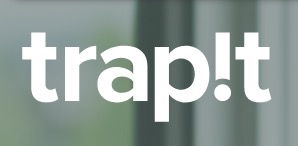
The Daily Trap, Quality Checked by Humans
The Internet is full of spam (among other kinds of “nefarious” content). If you’ve ever been on the Internet you probably know this.
A thing that makes Trapit unique is our approach to our sources. You may not know this, but we have a human (that’s right an actual living breathing person) look at every source before we let it into our system. Granted, humans make mistakes, but by and large this process has ensured that your traps are not flooded by content farms, snake oil peddlers, or horribly designed sites like this one.
Image via
Why do we need humans to vet the sites that come through Trapit? Well partially because I’m a librarian, they hired me, and I say we do, but really it’s because computers can’t read like a human reads. Computers are good at finding. But finding is not reading. A computer can go out and look for keywords, but it cannot necessarily tell if those keywords are being used in a valuable or useful way. Spammers know this so they embed unique keywords in otherwise useless content.
In other words a computer can’t necessarily tell the difference between a Weekly World News article on alien life forms and one in Science, but you can, probably at a glance.
From our vantage, not vetting our sources, and simply automatically crawling the web and adding anything found, would be akin to a library’s collection development policy being simply to add everything to its shelves that is donated. With this sort of policy, family bibles, duplicate cookbooks, and out of date textbooks, would quickly crowd out high quality sources that patrons actually need and want to read.
At Trapit we value a few things about sources. Primarily original content, significant content, and source integrity. Sources that exist simply to sell, confuse, generate clicks, or are obviously not adding value to the Internet dialogue-“Bloggers” that simply quote entire stories from other sources, without commentary (or even worse, steal them)-do not make it past our human check.
We also prize free speech and keep our personal opinions out of it (did I mention I’m a librarian). It doesn’t matter if I agree with a particular blogger’s political or religious opinions, what matters is if that blogger is providing original content and gives me enough information to be fairly certain that their main prerogative is to provide information (however unpopular the viewpoint).
Unlike a library we’ve got ample, endless shelf space and the personal blacklist feature we provide our users makes every user their own collection development manager (that’s library speak for, if you find something distasteful, you can stick it in the trash bin).
Source vetting is a time-consuming process (and the Oregon economy thanks us for that) but it’s worth it and it’s part of what makes our product special.
If you know of any unique, niche, new, or just plain awesome sources you think we should be aware of, tweet them to @trapitsources and we’ll check them out.
Laura